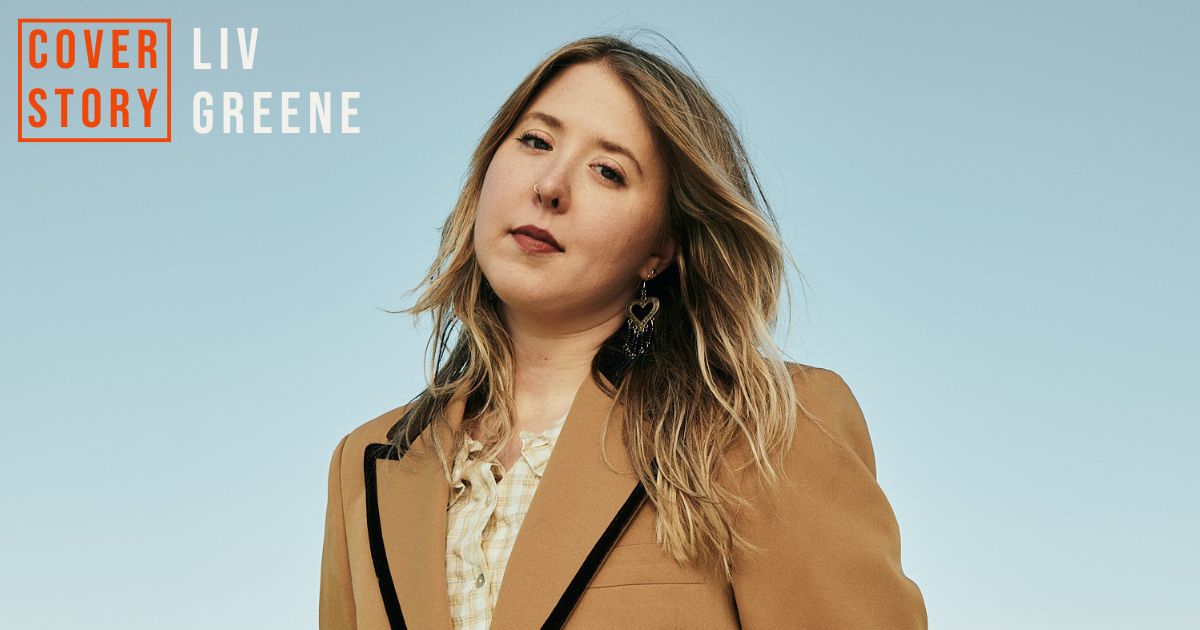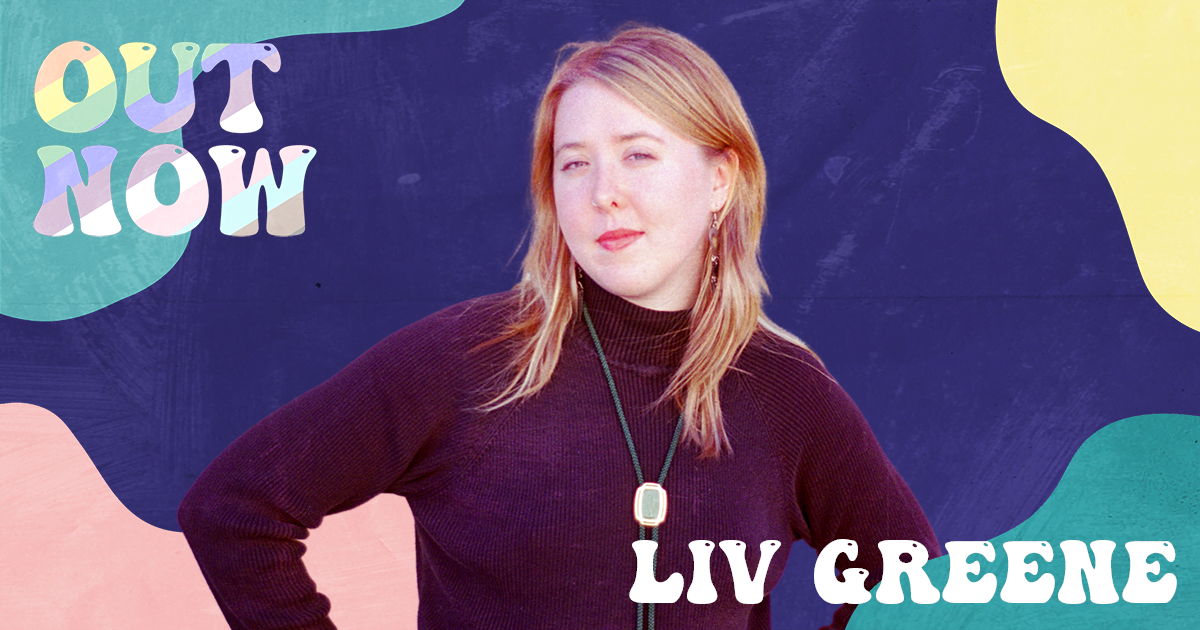For Liv Greene, music is all about showing up.
The Nashville-based singer-songwriter just released her sophomore record, Deep Feeler, in mid-October and she wrote and recorded the LP guided by a simple but powerful ethos: Show up for the craft of songwriting and it will show up for you, too. In Greene’s case, that looked like committing to a daily writing practice and finding external sources of accountability – like writers’ groups and online communities – as well as learning to work through days when access to her writerly brain felt blocked.
“A lot of the songs came out of just showing up for the practice, like, ‘Okay, what is there to play with today?’” she tells BGS, calling from her home in Nashville. “‘What’s coming out of my brain today?’”
Though some days only yielded frustration, Greene soon found herself with an album’s worth of material, the bulk of which draws heavily from a concurrent stretch of curiosity-fueled introspection, during which she considered her life as a queer person as well as the quirks and habits that make her who she is.
Greene recorded Deep Feeler at Nashville’s famed Woodland Studios, the East Nashville outpost that serves as home base for David Rawlings and Gillian Welch. She and GRAMMY Award-winning engineer Matt Andrews co-produced the LP, pulling together an ace band that includes acclaimed singer-songwriter and multi-instrumentalist Sarah Jarosz, whom Greene considers a musical hero. Highlights on the record include “Flowers,” a gentle and optimistic celebration of treating oneself with love and care, and “Wild Geese,” which draws inspiration from the late poet Mary Oliver.
Below, BGS catches up with Greene about her daily writing ritual, her experience producing Deep Feeler, and her decision to take a gamble on her artistic vision.
You just released a new record, Deep Feeler. What can you share about the project’s origins and how you conceived its initial vision?
Liv Greene: Most of the songs came out of a dedication to showing up for the craft, whether or not I had an idea when I sat down. I was almost forcing myself to write, but in a way that felt like cultivating a more consistent writing practice. Given that it was during the pandemic, it makes a lot of sense that many of these songs came out of that time. I had a few things to hold me accountable, too. There was a writers’ group I was part of, where I was writing a song a week for the first half of 2021, and a songwriting workshop where I wrote “Flowers.” I also led some workshops myself and participated in the exercises I’d give my students. After moving to Nashville, I wrote “Deep Feeler” and “Wild Geese,” and then the rest of the album took shape from there.
I love the idea of showing up for the craft. It’s not easy to sit down and write when you don’t have an idea at the ready. How did you begin those sessions? Do you have a ritual that helps you shift into that writer headspace?
When I’m in a writing season – which I’m always trying to get back to, though sometimes it’s just not the time, if I’m busier with other parts of my career – it’s usually marked by time with my instrument, just improvising. I’m most inspired by windows or outdoor spaces. Sitting on a porch or in my room looking out the window, just a lot of improvisation. That’s really the core of my songwriting: spending time seeing, maybe speaking in tongues, seeing what comes out in terms of gibberish, and then noticing what starts to stick. There’s something to that diligent practice of making things up consistently, even if you hate what you make up.
Tell me about choosing “Deep Feeler” as the title track. What does feeling deeply represent for you?
The album concept came out of a self-aware period of recognizing patterns in my life and seeing that I was the common denominator. I was in a lot of situationships. While the heart of this record is about the heartache and missteps of my early 20s, I hope it resonates with people beyond that scope. I’d come out, accepted myself, and allowed myself to feel desire and joy and all of these deep romantic feelings for the first time. This record is a lot of me sitting with myself and embracing the way I’m wired, trying to find a healthier self-awareness around it. I’m working on drawing boundaries with myself, but also being proud of my wiring and how it makes me a good storyteller and a good romantic.
As I was preparing to talk to you, I found a quote from you about making this record that really stuck with me. You said, “Now, rather than an escape from myself, songwriting is communion with myself.” Could you elaborate on that?
When I started writing songs in middle and high school, I was at an all-girls Catholic high school. I went to Catholic school most of my life. Being queer, I didn’t feel like I had much representation in my world, so I felt pretty lonely in high school. I didn’t have much of a musical community in D.C., where I grew up. Guitar was always my escape. I’d come home from school, play for hours, and write. As I got older, I had to form a bit more emotional intelligence and really sit with the person I wanted to be. I realized I couldn’t keep running away from parts of myself and that those parts were actually wonderful and something I should embrace. Songwriting became a different vessel for me to explore myself, rather than viewing it academically, as a hobby, or in a scholarly way.
You got to set up shop at Woodland Studios to record the album. Woodland is such a beloved part of Nashville’s music community, and it sounds like you had an excellent roster of musicians in the studio with you. What did being in that environment open up for you creatively?
The core of the record was made in one day in July at Woodland and it was just myself, bass, and drums – no headphones, live in two adjoining rooms, live onto tape. It was very high-pressure. We did six songs that day and just fired them off, trying to keep the authenticity of a live performance at the heart of the record. The studio days were some of the scariest of my professional life, but in a good way.
There were so many nights beforehand where I’d get the Sunday scaries and think, “Oh my God. Sarah Jarosz, who’s a hero of mine, is going to come to the studio tomorrow, and I’m producing. What if we don’t have time to do everything we need to?” It was an immense amount of pressure to be in the producer’s chair for my own project. But musicians put a lot of money into their records because it’s expensive to record. So I viewed the record as, like, “Okay, this is sort of like grad school.” Friends had asked me to produce their stuff before and I’d said no because I didn’t have the experience. Now, it’s baptism by fire, and I’m my own guinea pig.
You have some shows coming up, including a couple here in Nashville. Have you gotten to play much of this material live yet, or is that still to come?
Some of the core songs on the record have been in my set list for a while, at least around town; friends already know all the words to “Wild Geese” and some other “hits” from the record. But yeah, especially the B-side songs, a lot of those will be pretty new to my live show. I’m excited to hopefully do a lot more touring in the next year and see how the songs are landing out in the world. I haven’t really gotten to do that. My last record was a pandemic record and I never really toured it, so I’m really excited for the record to come out soon and then to get out there, meet people, and reconnect with those who resonate with it.
Are you still engaging in your daily writing practice? Do you have other new material on the horizon?
I’m hoping to go into the studio again soon to do a couple of songs. I’m just taking my time getting to know different producers around Nashville. I think this winter is going to be about doing one song here and one song there. I feel like I’m about halfway toward another record, so I’m getting excited to be in the studio again. It’s my favorite place to be.
Photo Credit: Joseph Ross Smith

